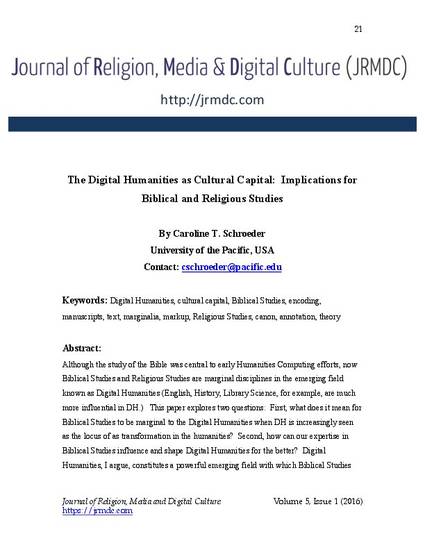
Although the study of the Bible was central to early Humanities Computing efforts, now Biblical Studies and Religious Studies are marginal disciplines in the emerging field known as Digital Humanities (English, History, Library Science, for example, are much more influential in DH.) This paper explores two questions: First, what does it mean for Biblical Studies to be marginal to the Digital Humanities when DH is increasingly seen as the locus of as transformation in the humanities? Second, how can our expertise in Biblical Studies influence and shape Digital Humanities for the better? Digital Humanities, I argue, constitutes a powerful emerging field with which Biblical Studies and Religious Studies must engage as critical participants or analysts. Moreover, our own field’s expertise on the history of canon, orthodoxy, and commentary can contribute to shaping a more inclusive and self-critical Digital Humanities.
Available at: http://works.bepress.com/caroline-schroeder/100/
